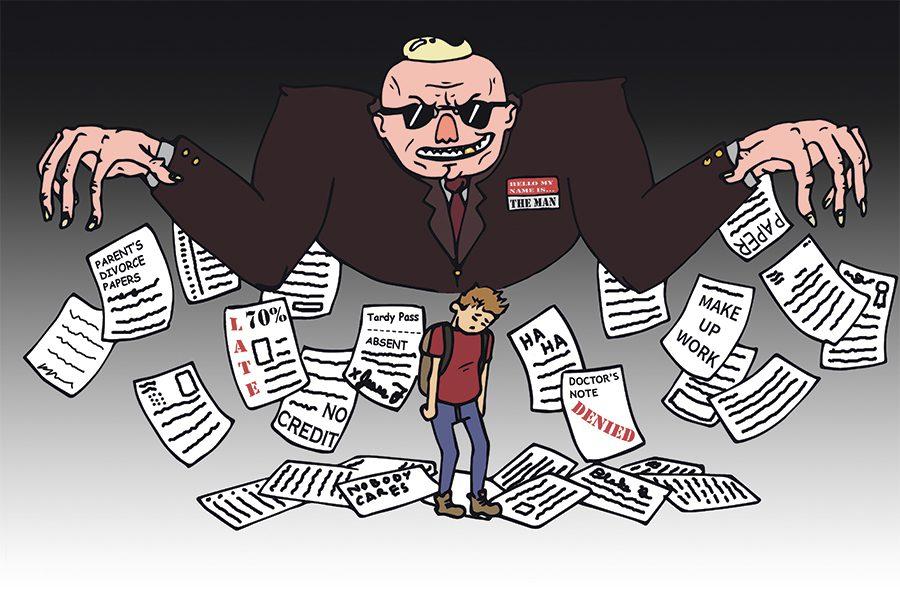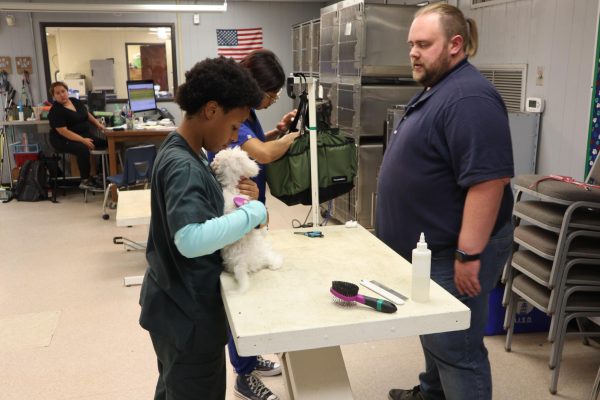Texas Education attendance policy too rough
November 17, 2015
At of the beginning of this year, Akins administrators began enforcing Texas Education code 25.092, which we as students of Akins know a little more informally as “the new attendance policy.”
For the students, the policy feels a bit new and sudden, but in reality this part of the Texas Education policy has been in effect for about two years, and it’s directive and purpose is fairly straightforward: decrease the general amount of student absences. Unfortunately, the issue doesn’t lie in the goal — lawmakers’ hearts were in the right place. Rather, the way they chose to fix the problem isn’t a realistic solution, but instead a broken policy that is only going to exasperate the problem.
The policy basically states that any student who misses more than 10 percent of the school semester must go through an appeal process, involving an appeal committee aimed at preventing further absences from happening. After 25 percent of the semester is missed, the student automatically fails the course and must recover the credit.
As an Editorial Board we unanimously believe this is not a fair policy.
We believe this policy is not well thought out or reasonably enforceable. It’s simply a superficial solution to the problem. Historically speaking, when government has made policies to intervene with the natural economic, political, and social situations, the situations have only turned for the worst. An analogy would be how companies cut hours so employees are not considered full-time and don’t have to cover health benefits for their workers. Comparatively speaking, state’s intervention in the school system isn’t going to cause students to stay in school. While there will definitely be a statistical difference in the attendance rate of students, it is likely that the amount of students dropping out will increase do to excess stress or knowing they won’t receive credit as it is.
The school district has made a huge effort to keep the school environment healthy, which intuitively means the sick don’t come to school until they’re healthy again. When you’ve got a policy in place that is designed to keep students in school and sick people aren’t exempt, suddenly the state just set up a way to for sickness to spread.
While Principal Brandi Hosack has said that illness and medical conditions would be considered by the appeal committee as a legitimate excuse to be absent, some might come to school sick just so they can avoid the paperwork and bureaucracy of the new appeal process.
Not only are healthy students in danger of getting sick, it risks those who are sick getting worse. A student coming to school with a fever of 102, for example, is definitely not healthy. Our bodies’ best defense against sickness is rest, and coming to school is causing further attack on our body.
The Editorial Board acknowledges that parent notes can be sketchy, because some students have a history of plagiarizing notes and their parent’s signatures, making it difficult to see when they’re legitimate or false. This is where we agree the committee would be a benefit rather than a nuisance.
However, when it comes to official doctor’s notes, the absence should be excused automatically instead of being subject to review by the appeal committee.
So while we applaud lawmakers for wanting to do something to improve attendance rates at schools, we disagree that mandating an increased attendance rate is the most effective means to make this happen.
Instead of issuing edicts, the state should encourage schools to offer courses and programs that keep students attending their classes. Some students come to school primarily for certain classes, teachers and extracurricular programs. The recent High School Nation tour stop at Akins is a good example of an event that encourages students to attend school.
We believe that lawmakers should rescind the law they passed in 2013 in favor of allowing campuses more flexibility that encourage students to want to attend schools instead of using fear and intimidation.








